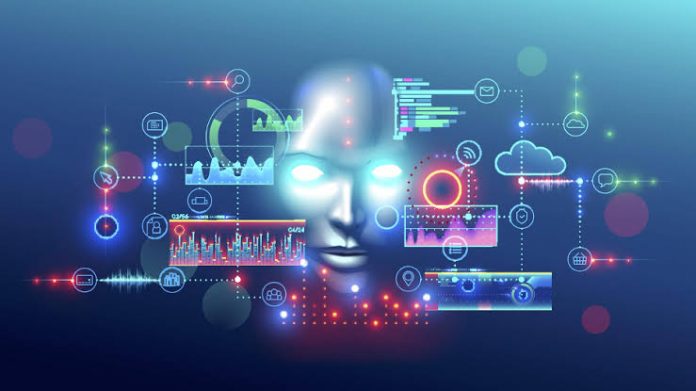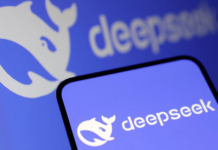Artificial Intelligence Marketing, powered by ML and deep learning techniques is used to predict user’s buying behaviour, next steps, clicks and in giving them overall a better UX and CX.
Jane logged on to her favourite online bookstore and came across the latest book “Klara and the Sun” from Kazuo Ishiguro. She was searching for the same a few days before the release and was delighted that the website suggested the book to her on the day it released. She could buy it in one click.
We are living in an age where customers expect us to not step up their expectations but step ahead of them. We are witnessing this influence in many services offered beyond the regular, especially in digital assistants like Siri or Alexa and smart speakers like Amazon Echo or Google Nest. For marketers, it is imperative to take marketing to another level while leveraging Artificial Intelligence. It is not AI digital marketing but farming the power of AI algorithms to bring right content to drive users to a website or to convert a million data points to create bang-on customer targeting advertising.
Artificial Intelligence, which is being touted as the holy grail of marketing, can be described a set of algorithms that operate intelligently like a human mind, taking inputs from the ecosystem (stream of customer transactions, evidence of consumer behaviour, buying cycle, preferences) and arrive at predictive decision-making. It can look at more data than a human in a lifetime and give recommendation decisions in split seconds.
Jane had spent ten minutes logged in and was waiting for the website to load and make the transaction happen. The fact that website did not load on time per her reflexes disappointed her and she left mid-way with the products in the cart without buying them.
We all have gone through this disappointing experience where we could not buy something because the web page didn’t load quickly enough. With AI, we can reduce these load times and can get the twin benefits of prompt loading of content and predictive user behaviour to close the deal and get customer satisfaction.
For example, Google has placed AI-based algorithms, which predict the inclination of uses to click on some preferred pages.
Not just personalised but AI- led Intelligent UX and CX
All of us have interacted with chatbots and most of us have found them to be egg-headed tools with mugged-up responses. Chatbots are not real AI; instead they are trees of pre-defined set of options that the bot follows till it runs out of all options and then is assigned to a human. In the case of real AI and NLP, one can provide more personalised and accurate UX, which is closest to user’s expectations.
A good example of personalised but intelligent AI is chatbots at Sephora, a beauty store which give make-tip & hair style tips derived from their data of user and domain expertise together.
A second example is Alibaba. Alibaba has opened a Fashion AI store in Hong Kong. Using AI to elevate CX, the store has special AI-driven shopping aids like intelligent garment tags and smart mirrors, which give information on clothes & colour co-ordination.
A third example is BMW which offers AI-enhanced sports car with a personal assistant. This car gets a driver’s information and then intelligently customises the systems to the driver’s preferences. It is also armed with a smart personal assistant intelligently talking to drivers and enable them travel routes and liaising with other applications like Google maps for smarter driving experience.
AI- led content-creation & data mining
Many companies have leveraged AI to fuel content creation and co-creation with customers. AI has been used to create blog posts, pulling traffic and boosting optimal SEO and to generate data reports for performance marketing.
Chase Bank applied AI to make their content more human-like or human-friendly. It has been surprisingly found out that AI- sourced content is more unique and live than that created by humans.
An example here is Deloitte, which uses Quill by Narrative Science for reports that go to customers, and enables them to take advantage of data and turning it into something more valuable.
AI- led Sentiment Analysis
With sentiment analysis, a marketer can gauge how the products and services are being perceived by target audience, and then give direction to changes needed to adapt towards the right goals. This is important and there is no limit to how effective you can get in catching customer attention and sales closure.
An example of AI company that offers sentiment analysis going to the level of every ad campaign and ad units at the respective platform is NICE which suggests ways to enhance the product itself and UX and CX of the company also.
To conclude
Hence, AI can bring a winning edge to marketing efforts when applied smartly and monitored and pivoted along the journey. There is no limit to its potential not just in marketing but in the entire tech ecosystem and beyond.
Any time waiting would be time-wasting. Get smart with AI. Get started with AI. Transform your marketing and your customer experiences.
Also read: 5 Game-Changing Trends in Digital marketing, eCommerce, and Businesses in 2021
Do Follow: CIO News LinkedIn Account | CIO News Facebook | CIO News Youtube | CIO News Twitter






